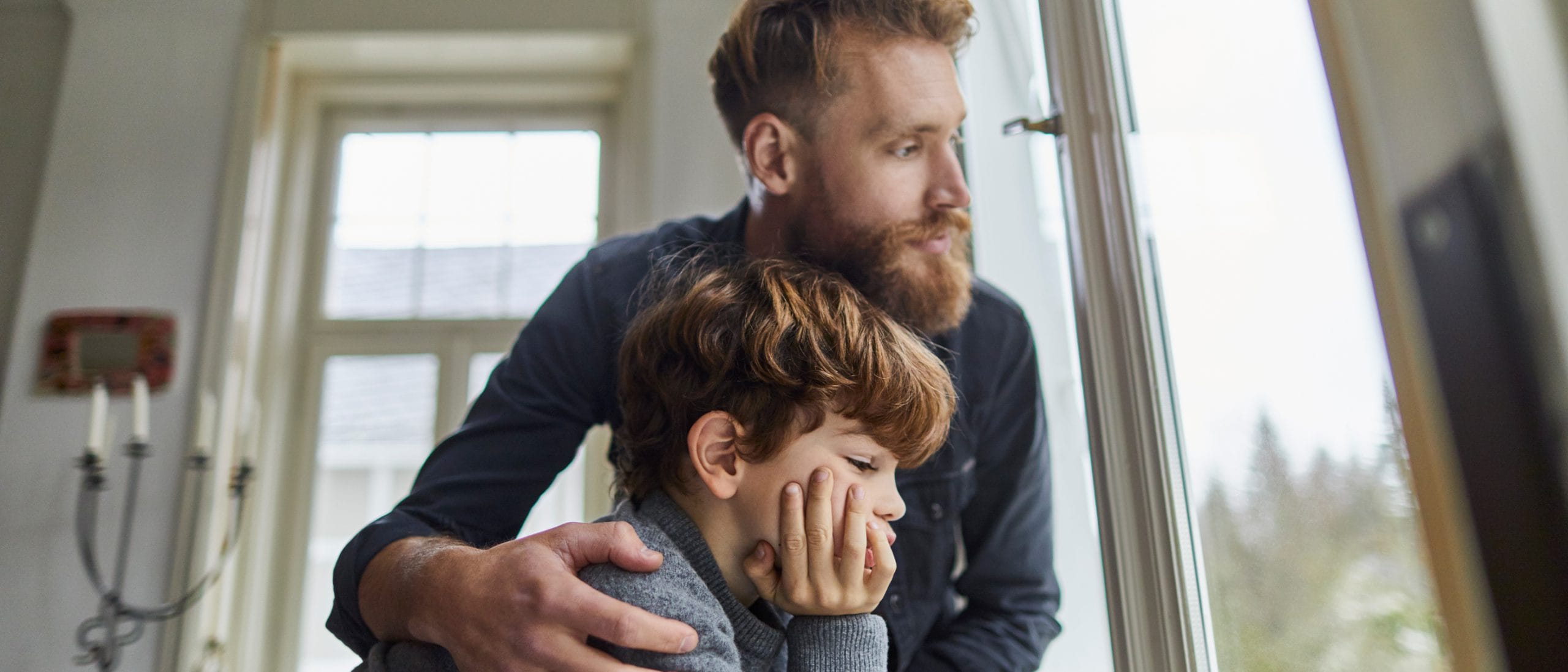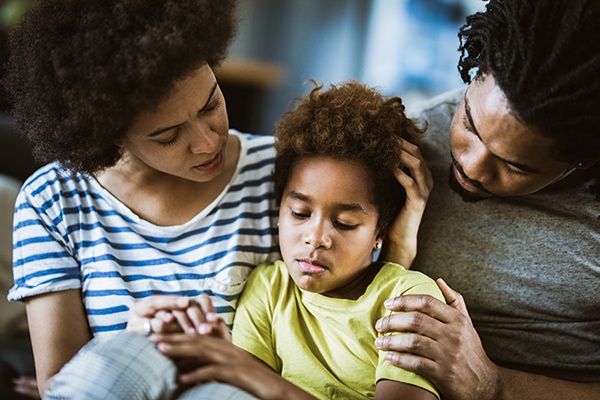
Raising Capable Kids
Your Child Can Recover Their Confidence After Sexual Abuse
When a child or teen experiences sexual abuse, it can have long-term impacts. These include things like PTSD (post-traumatic stress disorder), depression, anxiety, and low self-esteem. They may also have lost trust in others, lost confidence in themselves, and feel a lot of guilt and shame about what happened—even though it wasn’t their fault.
But you, as their parent, can help them overcome these side effects. When kids know who to turn to when they need help, and when they feel safe, loved, and confident in their abilities to learn and navigate challenges, they are more likely to develop healthy coping strategies and less likely to be revictimized. Even though your child has been through the unthinkable, they can overcome this, with your help. Here are some practical ways you can begin rebuilding their feeling of autonomy, personal safety, and confidence.

Cope With Emotion
Help your child recognize and cope with big feelings.

Build Confidence
Grow your child’s belief in themselves.
Communicate Boundaries
Sexual abuse is a complete violation of personal boundaries. After experiencing that, your child may have difficulty both knowing and vocalizing what their boundaries are. You can help them learn or re-learn this important skill by empowering them through assertive communication, which includes helping them know and understand that they have a voice and it matters. Being allowed to use their voice and enforce their personal boundaries will help your child or teen build their confidence, their sense of safety, and their trust—in themselves and in you.
At the core, communicating boundaries is really about helping your child understand that they deserve to give and receive respect, and that they can ask for it. Modeling and teaching them to communicate assertively will allow them to put words to their feelings and learn to ask for what they want and need. They will feel as though they can open up to you and that they will feel both heard and seen. Part of building that open communication is in how you respond to them. If you continually respond with love and a desire to understand, they’ll soon learn that it’s “safe” to talk to you about anything. It will reinforce that the more they communicate with you, the more you will be their advocate, coach, and parent.
Practice Consent
While consent and boundaries go hand-in-hand, we cover them as two separate sections here because consent is so important. At Saprea, our unwavering stance is that a child is not ever in a position to give consent to someone to sexually abuse them. Your child was sexually abused because their abuser ignored consent. This may mean that your child now misunderstands consent, doesn’t know when to ask for it, or may be unsure of when and how to give it. Any of these factors will make them more vulnerable in the long run or not know to ask for consent.
Consent includes:
Giving (and receiving) respect.
Ongoing mutual interest.
The ability to understand and agree to any action before it happens.
The option to withdraw from an activity at any point.
As your child practices giving respect, reading body language to understand mutual interest, and honoring another person’s “no,” they will understand that consent happens even in situations that have nothing to do with sex. These principles will also allow them to learn how to use their own voice to give or deny consent. This can occur in even the most mundane ways to help them see how consent plays a part in their lives.
Your child practices principles of consent when someone asks them for a hug, and they are able to tell the person “yes” or “no” based on how they really feel. You provide the example of consent when you are tickling or wrestling with your child and stop when they ask you to. Your child practices consent when they express romantic interest in a peer and, when it isn’t reciprocated, understand that for a relationship to develop there has to be mutual interest.
These small, day-to-day occurrences will allow them to see that their consent matters and that it has a role in healthy relationships. You can reinforce their right to choose and empower them to recognize the importance of consent in their lives.
Parenting a capable kid who has experienced sexual abuse can feel like an uphill battle some days. It takes time, patience, and practice—but it’s so worth the effort. Your efforts to help create a happy, healing childhood pave the way to a happy, healing adulthood.
Share this Post